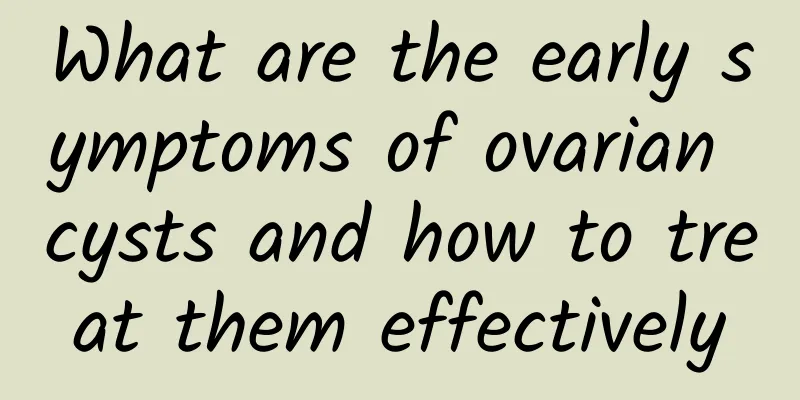Can vaginitis be cured?

|
Can vaginitis be cured? Vaginitis is the most common gynecological disease. Its incidence is very high and it troubles millions of female friends. The disease is prone to recurrence and some types are also contagious. Therefore, it must be actively treated. So, can vaginitis be cured? The following is a detailed introduction. First of all, I can tell you for sure that vaginitis can be cured. Once patients find symptoms of the disease in their daily lives, they should actively go to the hospital for examination and treatment, because there are many types of vaginitis. Only by confirming which type it is can the disease be cured in the shortest time. If you blindly treat it, it will not only fail to cure it, but also cause other harms. 1. Bacterial vaginitis: Symptoms mainly include increased vaginal discharge with a fishy odor, which worsens especially after sexual intercourse, and may be accompanied by mild vulvar itching or burning sensation. Topical medications can be used for treatment, such as metronidazole suppositories, once a night for 7 consecutive days. Or metoprolol (clomiphene) for 3 days. If other pathogens are detected, medications should be used for other pathogens to avoid the abuse of antibiotics. 2. Trichomonas vaginitis: If Trichomonas multiplies in large numbers in the vagina, vaginal secretions will increase, and the vulva will feel tingling and itching. The treatment method is to use vaginal suppositories after washing the vagina. After 3 to 4 times of continuous treatment, the tingling and itching of the vulva will be relieved. After that, daily treatment is required for about two weeks. The treatment of this type of vaginitis requires considerable patience and cannot be abandoned halfway, otherwise it will be difficult to recover. 3. Fungal vaginitis: Inflammation caused by vaginal infection with Candida albicans is called candidal vaginitis, which is most common in pregnant women. Candida survives in an environment with low acidity. During treatment, vaginal suppositories such as anti-trichomonomycin can be taken, and ointments can be applied to the genitals. The treatment should be continued for at least 2 weeks, because candidal vaginitis is prone to recurrence. 4. Senile vaginitis: Senile vaginitis is common in postmenopausal women. The vagina shows senile changes, epithelial atrophy, folds disappear, and the epithelium becomes smooth and thin. The treatment principle is to supplement estrogen, enhance vaginal resistance, and inhibit bacterial growth. Apply estrogen ointment topically twice a day, or flush the vagina with 1% lactic acid or 0.5% acetic acid solution once a day. Among them, trichomonas vaginitis and candidal vaginitis are both relatively stubborn and easy to relapse, so patients need to be more patient during treatment and not give up halfway. You must wait for a period of time after the inflammation completely disappears before you can stop taking the medicine, avoid recurring inflammation, and pay attention to personal hygiene habits. |
<<: What are the symptoms of anterior uterine fibroids?
>>: How to use medicine after abortion
Recommend
Thorough clinical understanding of the specific symptoms and characteristics of ovarian cysts
Due to the serious harm of ovarian cysts to patie...
Causes of ovarian cysts
Ovarian cysts are a type of tumor disease that is...
What causes pain in the lower left side of the abdomen?
When women experience pain in the left lower abdo...
Under what circumstances should uterine fibroids be removed? Under what circumstances should uterine fibroids be removed?
Under what circumstances should uterine fibroids ...
What are the typical symptoms of Bartholinitis?
The onset of Bartholinitis is related to its anat...
Where do single women's gynecological diseases come from? These points may be more critical than you think
In today's increasingly information-rich worl...
Brief analysis of the two most common symptoms of uterine fibroids
Among the various symptoms of uterine fibroids, t...
Cervical erosion can lead to infertility
Many women are told that they have cervical erosi...
Basic knowledge about viral cervicitis
Among many gynecological diseases, cervicitis is ...
Causes of bacterial vaginosis
The most common disease in the vagina is vaginiti...
A great way to lose weight! British children stand in class to reduce waist size
Obese children have become a civilization disease...
Can I take birth control pills more than a month after ectopic pregnancy surgery?
Dear female friends, the recovery period after ec...
Analysis of several important nursing requirements for ectopic pregnancy
Ectopic pregnancy is a disease that is very harmf...
Why do unmarried women have irregular menstruation? 3 reasons for unmarried women's irregular menstruation
Nowadays, many little girls are not very old, but...
What are the key points to prevent endometrial tuberculosis
The private parts also need daily care. When clea...









